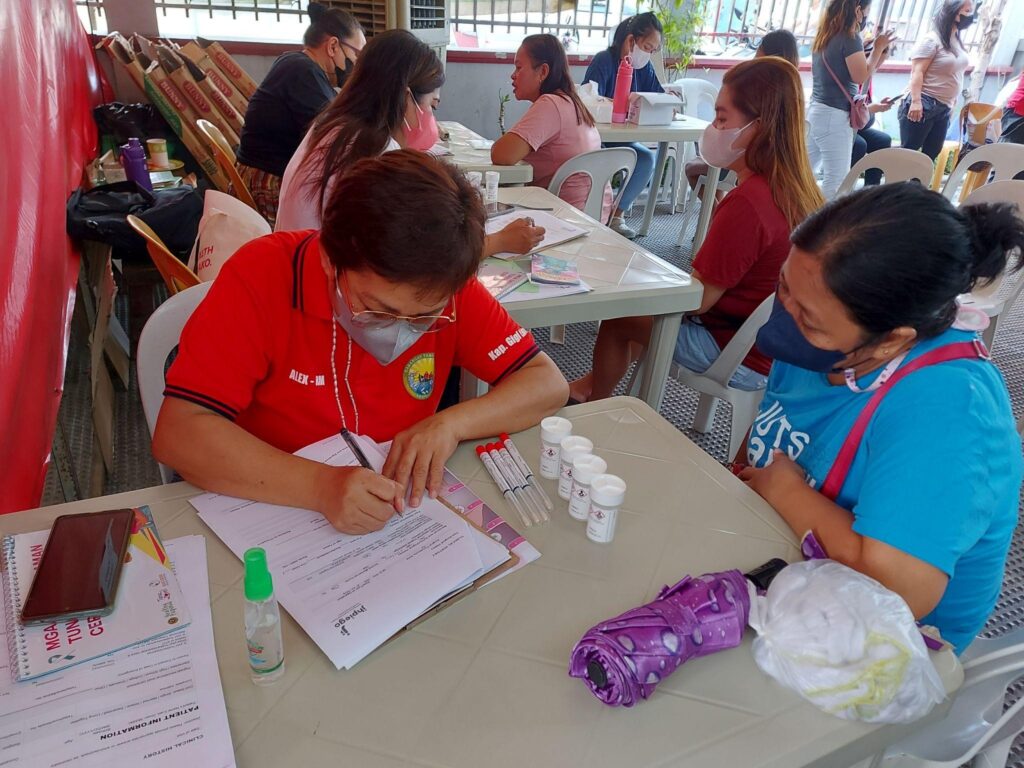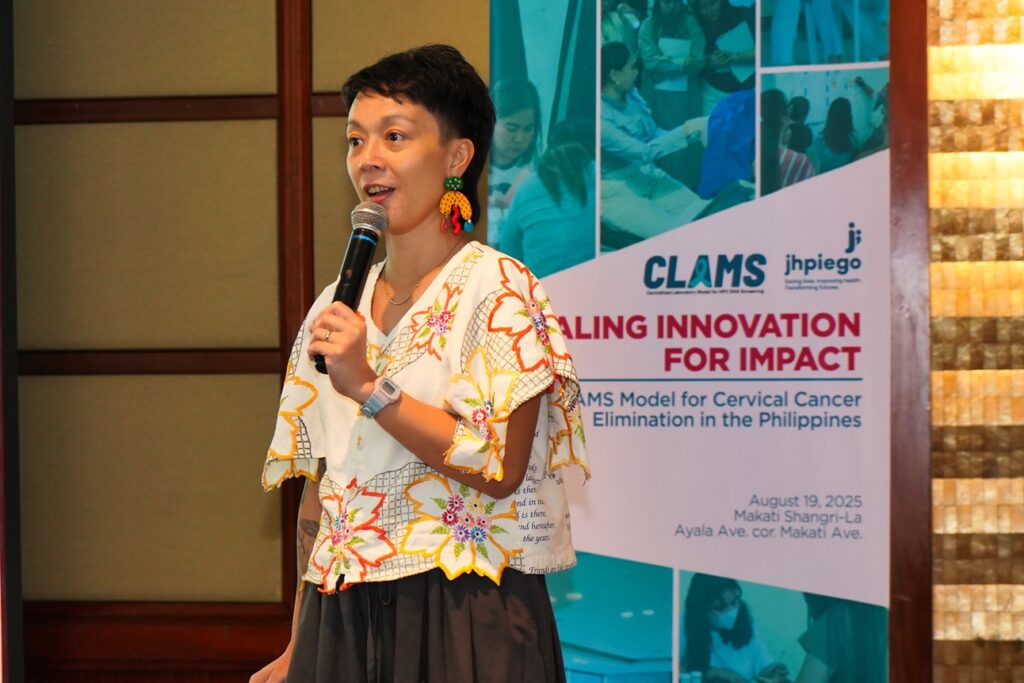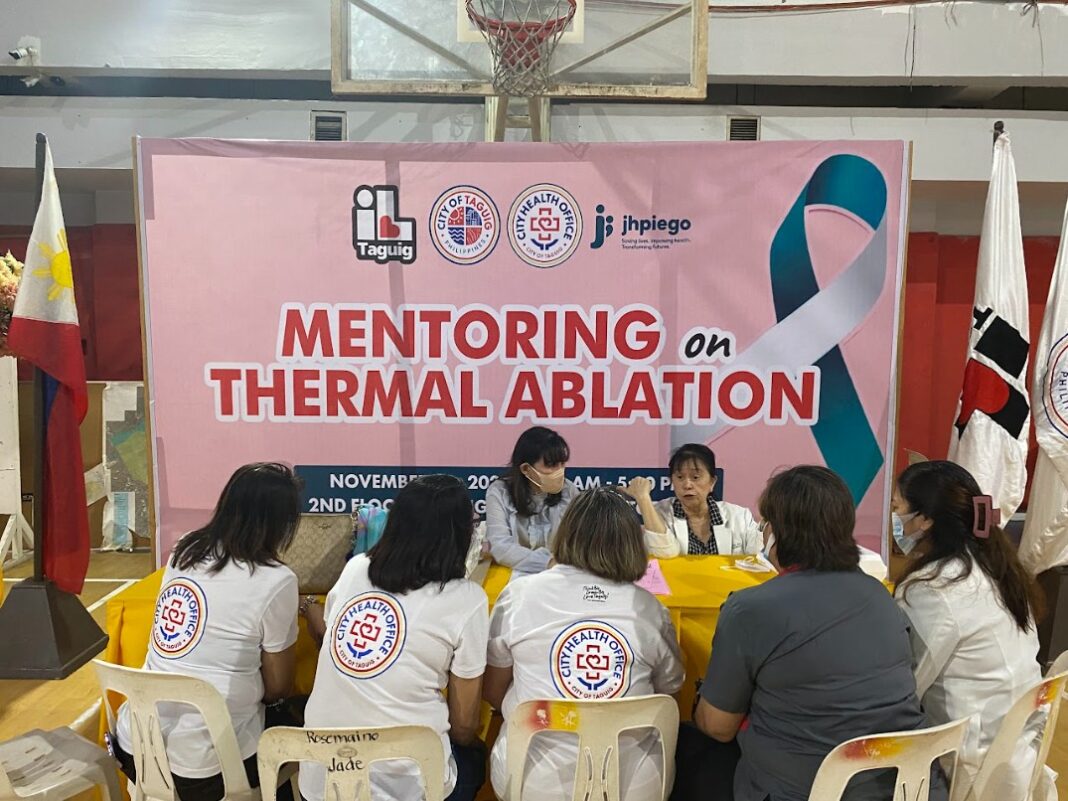MANILA, PHILIPPINES – Various stakeholders from the health, development, local and national government gathered today to spotlight the findings of the Centralized Laboratory Model for HPV DNA Screening (CLAMS) pilot project, marking a milestone toward the elimination of cervical cancer in the Philippines.
In the Philippines, 68% of women diagnosed with cervical cancer die within a year, an alarming consequence of late detection and limited access to timely care. Nearly 75% of cases are caught at advanced stages, when treatment is less effective and survival rates drastically drop.[1]
The CLAMS pilot demonstrated a scalable model that integrates HPV DNA testing into communities to improve access for women. The initiative highlighted how the screening model, using advanced, high-capacity testing and strong referral linkages, can expand nationwide reach, enable earlier detection, and connect more women to timely treatment. The CLAMS pilot project was implemented over 18 months from 2023 to 2024 across five highly urbanized cities in Metro Manila—Manila, Quezon City, Navotas, Taguig, and Muntinlupa—in close collaboration with local government units, health offices, and Jhpiego.

“Awareness is the first step—women need to know how early screening can impact their health. Next is accessibility: if testing is available in health centers, women can take it conveniently through self-sampling without burdening our healthcare system,” highlighted by Dr. Christia Padolina, Navotas City Administrator. HPV DNA testing represents a significant advance in the fight against cervical cancer. Unlike conventional Pap smears and visual inspection (VIA) methods, HPV DNA tests can identify the presence of high-risk HPV infections before they progress to cancer. This means women can be diagnosed earlier, with far greater accuracy, and connected to timely treatment—ultimately saving more lives and easing the burden on our health systems.
High-risk human papilloma virus (HPV) causes almost all cervical cancer cases, yet fewer than 1% of Filipino women undergo regular screening. Barriers in screening coverage, public awareness, and health system capacity, especially in underserved communities, continue to delay early detection that could save lives.
CLAMS addresses these barriers through an innovative hub-and-spoke network: women can collect cervical samples themselves, which are then transported to central laboratories for HPV DNA testing, enabling high-volume, highly accurate HPV DNA screening. The model also integrates thermal ablation at the point of care to treat pre-cancerous lesions.
“Self-sampling is a game changer because it allows women to collect their own specimens, removing barriers of discomfort and stigma. With samples processed through a centralized laboratory using high-throughput PCR, we ensure accuracy and efficiency without requiring a full hospital setup. This makes the model scalable, effective, and easily integrated into local health services—helping more women access life-saving screening,” said Dr. Ingrid Magnata, Country Program Manager, Jhpiego Philippines.
Building on its initial learnings, the CLAMS Phase 2 will expand HPV DNA testing to reach 10,000 women in Cebu, Davao City, and Taguig; strengthen follow-up systems to improve return rates for treatment; digitalize health information for stronger national data; and reinforce clinical governance by increasing provider training and treatment capacity.
By addressing these gaps, CLAMS aims to create a scalable, integrated model that advances the Philippines’ commitment to eliminating cervical cancer nationwide.


[1] AVPN. The Social Determinants of HPV and Cervical Cancer in a Foreign Land. https://avpn.asia/resources/blog/the-social-determinants-of-hpv-and-cervical-cancer-in-a-foreign-land/. Accessed August 4, 2025.


